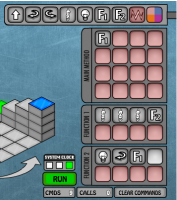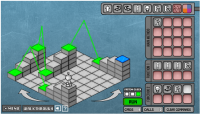- Joined
- Jan 1, 2014
- Messages
- 655
- Reaction score
- 316
- Points
- 63
- Age
- 28
- Location
- Houston, TX
- Steam
- EVoDRAgQUEEn (If a Skullgirls Sequel comes out)
- PSN
- FASTERLANED
Well, after so much thinking, I did not finish this game yet, I'm just glad it saves for me. I am stuck on level 11, I know exactly what I want to do, but it still doesn't work. Also, I noticed that there is actually more than one way to solve the problems presented in Light-bot, according to the pictures I've seen on the internet of the problems being solved. I understand that this game isn't a true determinant for my future as a programmer. I would hire a co-programmer on the side, but the thing is if something goes wrong or I want to test something in the game, I want to have full control of the game I'm making. I can't stand being unable to sit around while something I want to work doesn't work and not knowing how to fix it. That's why I want to be a programmer, to have the freedom to program my game anytime I please.



